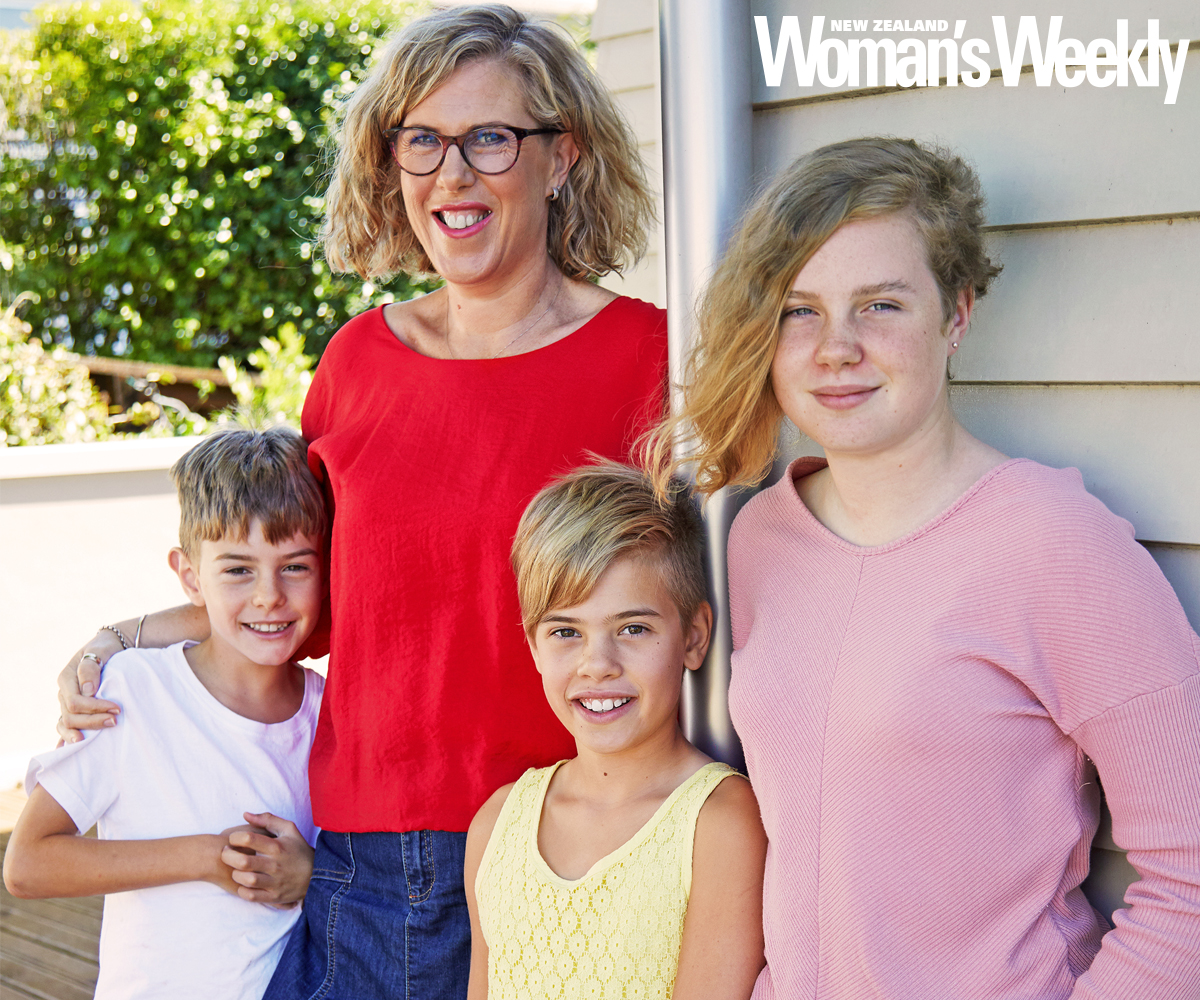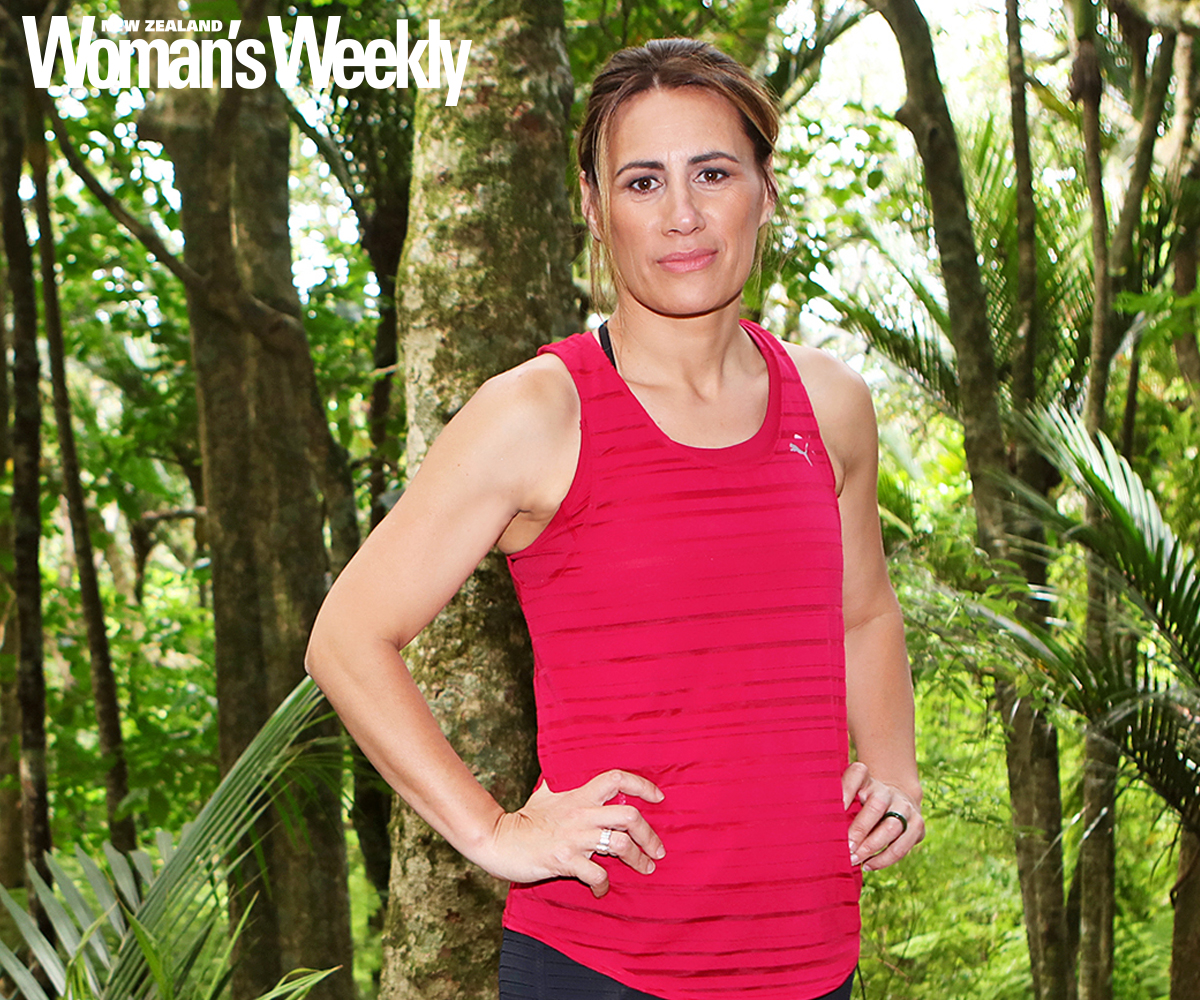At 39, Nicola Sumich became a member of a club she never wanted to join: the young widows’ club.
But while dealing with her grief was one thing – as well as managing her multiple sclerosis – the mum-of-three found navigating her children’s loss an even harder aspect as they grappled with their “amazing” dad Andy’s death.
The couple had been together for 18 years when her husband died of bowel cancer in 2015, aged 42.
“I found myself in a huge fog and suddenly thrown into meetings with lawyers, WINZ [Work and Income] and removing my husband’s name from joint accounts,” recalls Nicola from her home on Auckland’s North Shore.
“Six weeks after his death, my body came out in shingles from the stress and then the kids got chicken pox. I’m not ashamed to say I relied on a glass of wine and a sleeping pill every night. I needed the sleep, not only to cope emotionally, but to keep my MS symptoms at bay,” says the full-time mum.
“For several months, the kids and I just watched TV together and didn’t do much else. Thankfully, we were blessed with meals delivered from our church and school families.”

Nicola with her kids (from left) Zoe, Greta and Levi.
Nicola also found support in seeing a counsellor and reading books written by other young widows.
“Those two things helped hugely. It wasn’t just about grieving what I’d lost, but grieving the future you thought you’d have as a family.”
Her children, Greta (now 12), Zoe (10) and Levi (7), all expressed their grief differently.
“Greta bottled all her emotions up and would sneak in to my bedroom every night to sleep beside me. Zoe was very emotional, often getting angry. At the end of her meltdowns, she’d simply say, ‘I miss Dad.’
“After Andy died, I remember putting Levi to bed, who was only four, and he wanted me to read Spot Loves His Dad. As I turned his light out, he’d say, ‘I didn’t want my Daddy to die,'” remembers Nicola, wiping away her tears.
A lifeline for the children came in the form of weekly art therapy classes, funded by Hospice NZ.
They were invited to do their first session at North Shore Hospice with registered art therapist Joanna Harris before Andy passed away.
Then every Tuesday for a year after his death, Joanna met the kids in the staffroom of their primary school for an hour-long workshop.
“Art therapy offered them a chance to escape their grief,” explains Nicola, who never sat in on the classes, so the kids were free to express themselves without worrying about upsetting her.
“The art sessions were amazing,” enthuses Zoe. “We could draw or make anything we wanted to. Sometimes we painted what we were feeling. Look at my little brother’s picture –he’s drawn worms and brown worm poop,” she laughs.

Zoe and her siblings have been expressing their loss in artworks with a therapist.
Several years on from the initial trauma, Nicola feels like they’ve overcome the worst of their grief and can relax into what she calls their ‘new normal’.
“It took a while to work through our changed family dynamics,” says the 43-year-old, originally from Nelson.
“The best advice I can give to others in this situation is to be kind to yourself. I put so many expectations on myself to protect the kids and maintain the life that we had, but actually, life as you know it just stops.”
When Andy, a structural engineer, got diagnosed with stage four colon cancer in September 2014, Nicola wasn’t shocked.
“To be frank, I’d questioned his bowel movements for years,” she says. “He always had to rush to the toilet and assumed it was irritable bowel syndrome. I ended up making the doctor’s appointment for him to get checked out.”

Andy and the kids just after he was diagnosed.
As it transpired, they found out that Andy had a genetic predisposition towards bowel cancer with pre-cancerous colon polyps appearing in his teens.
The oncologist said the diagnosis had been a matter of when, not if.
“The cancer spread to his liver and lungs,” Nicola tells. “It was gut-wrenching to sit the children down and tell them Daddy was going to die.
“Yet I also felt God gave me a peace that I was going to be okay – and it’s the same with my MS,” she says of the disorder that attacks the central nervous system and stopped her from working as a personal trainer.
“I don’t let it be a huge worry in my life, even though it puts up barriers. I consider myself fortunate to still be able to walk the kids to school.”




